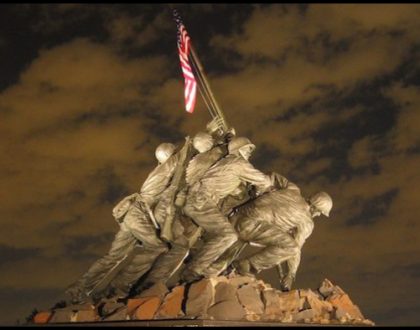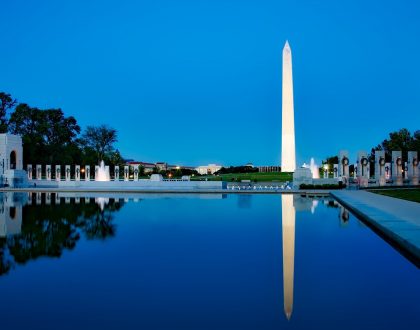AP World History: Modern

Course Features
Course Details
Course Overview
In the AP World History: Modern, students will explore the major themes and skills necessary to analyze historical events and developments. The course is divided into nine units, each focusing on a different period and topic in world history. The units delve into specific topics such as trade networks, land-based empires, transoceanic interconnections, revolutions, consequences of industry, global conflict, Cold War and decolonization, and globalization. Students will examine the expansion of trade, the rise and strategies of land-based empires, the exploration and colonization of the Americas, Africa, and Asia, the Age of Revolutions, the consequences of industrialization, global conflicts in the 20th century, the Cold War and decolonization, and the processes and effects of globalization.
Throughout the course, students will analyze causation, explore different cultures and civilizations, compare and contrast societies, and examine the interconnectedness of historical events and developments. By the end of the course, students will have gained a comprehensive understanding of world history and the ability to analyze and interpret historical phenomena.
Acellus AP World History: Modern has been audited and approved by the College Board to provide students with a college-level learning experience.Sample Lesson - Introduction
 This course was developed by the International Academy of Science.
Learn More
This course was developed by the International Academy of Science.
Learn More
Scope and Sequence
Unit 1 - The Global Tapestry In this unit, students will be introduced to the scope and content of AP World History. They will explore the major themes and skills necessary to analyze historical events and developments. The unit will begin with a study of China's Dynasty System, focusing on the political structure and social hierarchy during the Song Dynasty. Students will also examine the influence of Confucianism in East Asia and its impact on Chinese culture. The spread of Buddhism in East Asia will be explored, along with the economy of Song China. Additionally, students will learn about the spread of Islam in Africa and the Middle East, the presence of Judaism in the Middle East, and the growth of Christianity in Africa. The unit will conclude with an examination of the fall of the Abbasid Caliphate, intellectual innovations in Dar al-Islam, the prominence of Hinduism in India, the influence of Islam in Central Asia, and the spread of Buddhism in India and Central Asia. African civilizations, including the Mayan, Mexica, and Inca civilizations, will also be studied. Throughout the unit, students will compare different societies and analyze their similarities and differences.
Unit 2 - Networks of Exchange This unit focuses on the expansion of trade and the networks that connected different regions of the world. Students will examine the trade in luxury goods and the demand for specialized goods that drove commercial activities. The rise of the Mongols and their impact on trade and cultural diffusion will be explored. The growth of trade in the Indian Ocean and the development of Indian Ocean states will be analyzed, along with the voyages of Zheng He. Environmental factors influencing trade, such as geography and climate, will be discussed, as well as the trans-Saharan and Afro-Eurasian trade routes. Students will also study the travel writers of Afro-Eurasia and the consequences of increased connectivity. The unit will conclude with a comparison of economic exchange between different regions.
Unit 3 - Land-Based Empires In this unit, students will study the major land-based empires of the early modern period. The Manchu, Mughal, Ottoman, and Safavid empires will be examined in terms of their political structures, imperial rivalries, and strategies for centralized imperial control. Students will analyze how these empires legitimized their rule and generated revenue. The impact of the Protestant Reformation and the Catholic Counter-Reformation on Europe and the Sunni-Shia divide in Islam will be explored. Sikhism will also be discussed as a religious response to the dominant empires. Finally, students will compare the land-based empires and identify similarities and differences.
Unit 4 - Transoceanic Interconnections This unit focuses on the exploration and colonization of the Americas, Africa, and Asia by European powers. Students will examine the spread of knowledge to Europe, the state support of transoceanic exploration, and the voyages of exploration by the Portuguese, Spanish, and Northern European powers. The Columbian Exchange and its effects on both the Old and New Worlds will be analyzed. The establishment of European maritime empires and the responses of Asian states to European imperialism will be studied. The growth of states in Africa, Indian Ocean trade networks, American colonial economies, and the institution of slavery in Africa and the Americas will also be explored. The unit will conclude with an examination of the global trade system and the cultural, religious, and social effects of the slave trade. Students will analyze resistance to state power and the ethnic diversity within centralized states. Comparisons of transoceanic interconnections will be made throughout the unit.
Unit 5 - Revolutions This unit focuses on the Age of Revolutions, including the Enlightenment, nationalist revolutions, and the Industrial Revolution. Students will study the spread of Enlightenment ideals and the reforms that were inspired by these ideas. The causes and consequences of nationalist revolutions will be examined, along with the concepts of democracy and liberalism. The revolutions in the Americas and the individuals who played key roles in them will be analyzed. The causes and effects of the Industrial Revolution, including its impact on technology, government policies, and social classes, will be explored. Students will also study the rise of labor union movements and the emergence of socialism and communism as responses to industrialization. The unit will conclude with an analysis of industrial reforms in Asia and Africa, the role of women and children in industrial societies, and the challenges posed by industrialization. Continuity and change in the Industrial Age will also be addressed.
Unit 6 - Consequences of Industry This unit focuses on the consequences of industrialization, including imperialism, migration, and economic development. Students will explore the rationales for imperialism and the expansion of states during this period. The impact of anti-colonial movements and the establishment of new states will be analyzed. The economic development of different regions, the patterns of migration, and the effects of migration on both sending and receiving countries will be studied. Students will also examine debates about the environment, global economic systems, and movements for social and economic justice. The unit will conclude with an analysis of resistance to globalization, including economic resistance and social media issues. The institutions in a globalized world and the challenges and benefits of globalization will also be addressed.
Unit 7 - Global Conflict This unit focuses on global conflicts in the 20th century, including the collapse of land-based empires, World War I, World War II, and various genocides. Students will examine the causes and consequences of the collapse of land-based empires and the factors that led to World War I. The mobilization of society for war, technological advancements, and the impact of the Great Depression will be analyzed. The rise of fascism and Nazism, along with the causes of World War II, will be studied. The unit will also explore propaganda, ideology, daily life during wartime, and the Holocaust, as well as specific cases of genocide such as the Armenian Genocide and the Rwandan Genocide. Throughout the unit, students will analyze causation in global conflicts.
Unit 8 - Cold War and Decolonization This unit focuses on the Cold War and the process of decolonization. Students will study the causes of the Cold War, the formation of alliances such as NATO and the Warsaw Pact, and the role of proxy wars. The impact of Communist China and worldwide communism will be analyzed. The process of decolonization in India, Pakistan, Ghana, Algeria, West Africa, and Egypt will be examined, along with the conflicts that arose in newly independent states. The unit will also explore the role of women in gaining power, nonviolent and military movements, violence against civilians, and the end of the Cold War. The effects of the Cold War on global politics and society will be discussed.
Unit 9 - Globalization This unit focuses on the processes and effects of globalization in the 20th century. Students will examine the advancements in communication, transportation, energy, and medical technologies that facilitated global interconnectedness. The Green Revolution and its impact on agriculture will be studied, along with debates about the environment. The role of free-market economics and knowledge economics in shaping global trade and development will be explored. The fight for rights and steps toward gender and racial equality, as well as human rights repression in China, will be analyzed. Students will also study access to education, environmental and economic movements, and the globalization of culture. The unit will conclude with an examination of resistance to globalization, including economic resistance such as Brexit, and social media issues. The institutions in a globalized world and the challenges and benefits of globalization will also be addressed.






